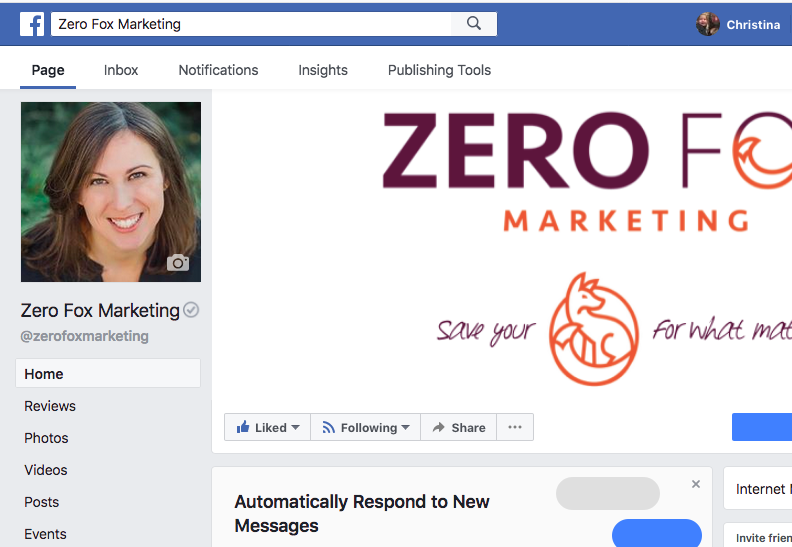A Big Old Disclaimer: I am not perfect. I do not know everything there is to know about marketing. (I don’t know everything about anything for that matter, really. It’s impossible.)
But I do know that business owners get some really bad marketing advice, sometimes from well-intentioned people. Here are a few of the weirdest/worst examples I’ve heard.
Weird Piece of Marketing Advice #1
Image alignment in a blog post matters for SEO; left aligned images are better.
Um, what?
I had never heard of this, but it was such an oddly specific piece of advice that I Googled it to make sure I wasn’t missing something.
Should images match the content you have on a page? Yes. Should they have good ALT tags and names? Yes. Does good image alignment make for a better user experience? Yes.
But does image alignment matter for SEO? No.
Weird Piece of Marketing Advice #2
Use the meta keyword field of your product pages to help internal site search.
Now this piece of advice, though wrong, was somewhat well-intentioned. My client was told to use the meta keyword field on his site’s product pages to associate items together. That way, they would appear in the site search accordingly.
I say that it was somewhat well-intentioned because this advice did *technically* help the site’s internal search function on their setup.
But it also created an improper use of the meta keywords tag in the process. And while use of a meta keywords tag is just about dead and offers negligible SEO effect at best; improper use could actually do some harm.
The harm it did (if any) was likely null and hard to measure. But my main problem here is that this advice was a shortcut taken when there was a simple path to do things correctly.
A good solution would have been to make the product pages themselves more content-rich (better for both customer experience and search), and use a dedicated field for the terms required within a site search (like the one offered in BigCommerce).
Weird (And Most Potentially Harmful) Piece of Marketing Advice #3
Use time on site and pages per visit as conversion tracking metrics in Google Analytics.
This piece of bad advice takes the cake. And the worst part is, the client didn’t even know it was happening.
I was doing a routine audit of a new client’s Google Analytics account a few years ago, when I noticed that their conversion rate was sky-high. I dug a little deeper, and I realized that whoever set up their Analytics account had configured Goals to make both “time on site” and “pages per visit” count as conversions.
Now maybe this would have been a valid setup for an online publisher who makes money based on user “engagement.” But for a company selling products and services, those kinds of metrics ARE NOT CONVERSIONS! They’re more like quality signals.
There is a big difference. Why?
Because that client made money if someone:
- Bought something from their site, or
- Took some sort of buying action on their site (i.e. requested a quote).
They did not necessarily make money if someone on their site stayed a long time or viewed a lot of pages.
In other words, if a visitor spent five minutes on the site but didn’t buy or take an action, the client made no money. But a two minute visit could have resulted in a sale. Which visit held more value?
According to their conversion settings (before I got my hands on them), those visit scenarios were given an equal weighting in terms of success. A long visit that then resulted in a sale was also double counted as two conversions.
Who wants to make marketing decisions based on bad data like that?
Why This Topic Makes Me So Angry
I wrote a blog post about this topic because it actually enrages me. I get mad for a few reasons. My advice to my fellow marketers:
- You can’t know everything. And that’s ok! But please don’t give advice that is blatantly false and could be disproved with a quick Google search.
- Taking advantage of a business owner’s lack of marketing knowledge is never ok. Don’t ignore conversion metrics, or inflate them artificially. Be as honest as you can be, and treat their money as if it were your own.
I’m going to step down off my soap box now.
But please, business owners, don’t follow advice blindly, and make sure you pay attention to what your marketing people are telling you. If something doesn’t feel or sound right, it’s probably not. And if you want to run something you’ve heard by me and/or give yourself a marketing sanity check, I’m happy to help.




About The Author: Christina Ousouljoglou
I'm a results-focused, data driven go-getter. I help clients turn marketing headaches into understandable business strategies that work.
More posts by Christina Ousouljoglou